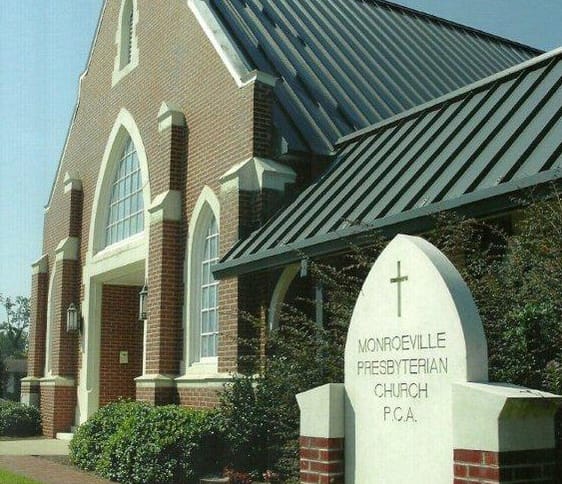Dear Friends,
This month’s short bio-mention is on Dr. Dietrich Bonhoeffer. You may remember my quoting him numerous times in sermons and in studies, and this is due to the fact that he is, quite frankly, my favorite theologian. I’ve read and studied his work and life extensively over the years, even taking classes on him at two different seminaries. Why the fascination? It is not only that Bonhoeffer was a brilliant theologian. It is that his life and theology together make him one of the most fascinating people in history.
Blessedly, Bonhoeffer’s life has been thoroughly documented by his best friend and confidante, Eberhard Bethge. He wrote a thousand-page biography on Bonhoeffer, which, thankfully, has been translated from German to English (Dietrich Bonhoeffer: A Biography). Bethge also took some of Bonhoeffer’s unpublished and unfinished works and got them cleaned up and published. The world is a better place because of those efforts. In some cases, like in Bonhoeffer’s book Ethics, some chapters are not finished. However, his unfinished chapters are a more profitable read than many folk’s whole books. Sometimes, also, to ensure the passing on of a key theology, where Bonhoeffer’s personal notes had been lost, the notes of people who attended his lectures were sought and put together, such as in the book Christ the Center.
Another biography that American Evangelicals seem to rally around is Eric Metaxas’ book, Dietrich Bonhoeffer: Pastor, Martyr, Prophet, Spy. I think many additional labels could be added to this gentleman. He’s the real deal. He was off-the-chart brilliant. He was bold. He was clever. He was passionate. Bonhoeffer’s actions during the Nazi regime for the Lord and His Church were nothing short of legendary. But most importantly, Bonhoeffer loved the Lord more than his own life. I can hardly give a thimbleful of content in this short bio on Bonhoeffer, so, I highly recommend Metaxas’ book as a start, as it is an easy read.
Dietrich Bonhoeffer was born in Germany in 1906. He had a twin sister, and they were two of eight children in an extraordinarily talented family. Bonhoeffer finished his doctorate of theology in 1927. After years of ministry, he was executed by the Nazis in 1945, when he was 39. How he got there was a long and involved process. He was a Lutheran pastor, but, he also worked actively as a double agent against the Nazis. He ran an underground seminary at the risk of his life. He was also a founder of the Confessing Church in Germany. He was arrested in 1943 and imprisoned for a year and a half before he was executed at the very end of the war. This had a bit to do with Bonhoeffer’s involvement with a plot to kill Hitler. Then 21 days after his execution, Adolf Hitler committed suicide.
Bonhoeffer’s most famous book was, probably, Discipleship (known in America largely as The Cost of Discipleship). It is from that book that you’ve heard me quote extensively concerning the concepts of “cheap grace” and “costly grace.” He had it published in both German and English. His book, Ethics, is an unfinished masterpiece, and Bonhoeffer spent years on it as his ethical ideas evolved and were honed. In it he poses the question, “What is the first question of Ethics?” The answer is not “How can I do good?” or “How can I be good?” Rather, the first question of Ethics is “What is the will of God?” The book, Christ the Center, is a key to reading Bonhoeffer, as it elaborates on a critical element of his thinking. The point is that Jesus Christ, the incarnate God-man, is the center of all reality. The implications of this truth are beyond profound. In his book Spiritual Care, I found a solution to my conundrum as a pastoral counselor. The idea of people coming to me for counseling never quite fit, as it just seemed too secular of a concept. The framework of Spiritual Care works far better for me, and what Bonhoeffer discusses in his book was so similar to what I was doing, it affirmed my ministry immensely.
I could go on and on about his various books and writings, and, I’ll admit, reading Bonhoeffer is not something to be done lightly. It requires thought and careful study to grasp many of his concepts. Here is a list of some that might interest you: Psalms, The Prayer Book of The Bible; Life Together; Meditating on the Word; Creation and Fall, Temptation—Two Biblical Studies; and Letters and Papers from Prison. If you want to go deeper, I recommend his Sanctorum Communio and Act and Being, which are his earliest published works. These will help you understand some of the foundational thinking you will find developed in his more popular work. There are also a number of collected works of his available. I recommend both No Rusty Swords—Letters, Lectures and Notes 1928-1936 and The Way to Freedom—Letters, Lectures and Notes 1935-1939.
If you want to watch a video that tells his story, you’ll find a few available. I don’t recommend Bonhoeffer: Agent of Grace at all. Your time would be better spent watching Dietrich Bonhoeffer: Memories and Perspectives, which is a tremendous work. A secondary recommendation would be Bonhoeffer: Pastor, Pacifist, Nazi Resister. Although a good work overall, I disagree with the latter film’s premise that Bonhoeffer was a pacifist. They work unconvincingly to make him seem so, probably due to some agenda. Bonhoeffer was not a pacifist. He did, however, have an aversion to unjust war and a sensitive heart to the death of his fellow human beings.
If you want more info, I’ve written reviews on each of these videos along with reviews on several of the books I’ve mentioned. If you have to pick one book, read The Cost of Discipleship. If you have to pick one movie, watch Memories and Perspectives.
God bless,
Roger


